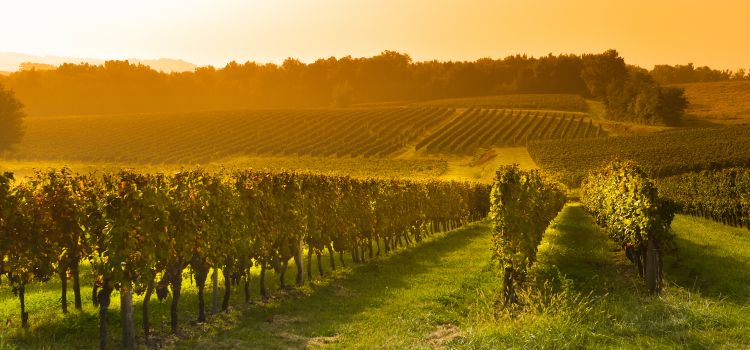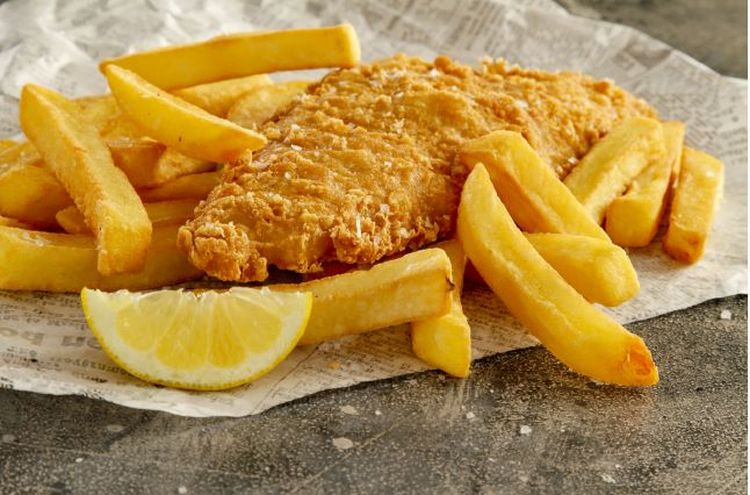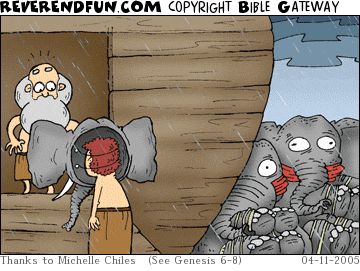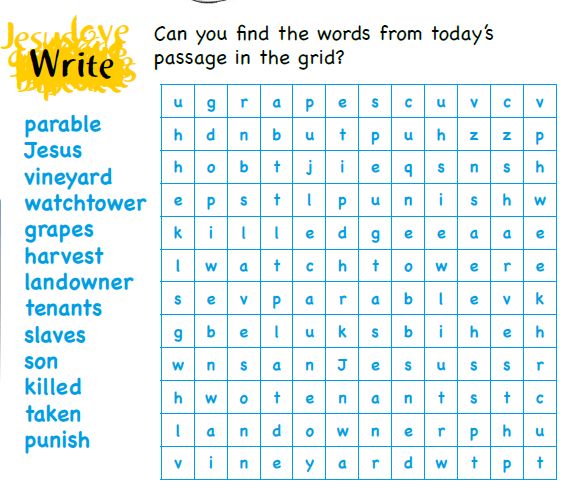
Hello everyone,
Welcome to the latest issue of our church newsletter. Our newsletter is sent out regularly to share reflections from services, Bible readings and church news to our church family. You can find previous issues on our church website here.
We would love to hear from you and are always looking for uplifting and encouraging content to share in future issues of this newsletter. If you have any ideas or content that we can share, please do email them to Louise (publicity@christchurchuxbridge.org.uk)
Opening Prayer
God of all creation, thank you
for calling us to be stewards of your earth and your treasures,
for calling us to tend your Gospel,
to share the fruits of your Spirit,
to encourage your disciples in their daily lives,
and to work together for the good of all –
joyfully, humbly and urgently, in Jesus’ name. Amen.
(Taken from Roots)
Reflection from 1 October
Readings – Ezekiel 18: 1-4, 25-32 and Matthew 21: 23-32
A short story: A farmer hired a man to work for him. He told him his first task would be to paint the barn and said it should take him about three days to complete. The hired man was finished in one day. The farmer set him to cutting wood, telling him it would require about four days. The hired man finished in a day and a half, much to the farmer’s amazement. The next task was to sort out a large pile of potatoes, arranging them into three piles: seed potatoes, food for the pigs and potatoes that were good enough to sell. The farmer said it was a small job and shouldn’t take him very long at all.
But at the end of the day, the farmer came back and found that the hired man had barely started. “What’s the matter here?” said the farmer. “Oh, I can work hard,” said the man, “but I can’t make decisions.”
I feel a bit like that. Decision fatigue. I can’t decide what I want on the menu. I find it quite hard to make choices sometimes. We’ve got a lot of simple decisions and choices to make every day. You’ve all had choices this morning, no doubt. Whether to come to church or not, what to wear, what to have for breakfast. And we make choices all the time. What TV programmes we’re going to watch, so on.
Some time ago, quite a long time ago now, the Prime Minister Herbert Asquith spent a weekend at the Waddesdon estate with Baron Rothschild and the Rothschild family. One day, as he was waiting for tea-time by the butler, the following conversation ensued.
“Tea, coffee or peach from the wall, sir?”
“Tea, please,” said Asquith.
“China, India or Ceylon?” asked the butler.
“China, please.”
“Lemon, milk or cream, sir?”
“Milk, please,” said Asquith.
“Jersey, Hereford or Shorthorn?” said the butler.
That might seem strange at its time, but we’re actually so privileged that if we walk down our supermarket shelves, we’ve got choice like that, too. So many types of milk, so many types of tea, so many types of coffee. And, you know, it doesn’t seem anything to us that those choices are available. It might be hard to choose which one we want, but they are available to us all. Our supermarket shelves have grown with luxury products, and we don’t need a butler to ask us what we would like.

Sometimes in life, we have to make more important some bigger choices, life-changing choices. And sometimes we might need to ask others for help, and we will probably, certainly, have to pray about them. We may think that we are not very important in the scheme of things, but God loves each one of us and wants the very best for our lives.
In our call to worship this morning, the Psalmist tells us that if we trust in God, God will help us, will guide us to make the right choices:
“Show me your pathways, Lord. Teach me your paths. Guide me in your truth and teach me. For you are God, my Saviour, and my hope is in you all day long. Amen.”
It’s become very common in our society to want to point the finger, to blame someone, to want someone to take responsibilities for mistakes. Psychotherapists often try to trace adult feelings of anxiety, worry, shame, guilt, hopelessness, helplessness, sadness, grief, anger. They want to trace them back to childhood trauma.
Poet Philip Larkin blames the parents, and I paraphrase, “They muck you up, your mum and dad. They may not mean to, but they do. They fill you with the faults they had, and add some extra just for you.” But he says, it’s not their fault: “but they were mucked up in their turn by fools in old style hats and coats, who half the time were soppy-stern, and half the time at one another’s throats.” And then he sadly decides that man hands on misery to man.
Actions have consequences. That saying about chickens coming home to roost, about mistakes or wrongs catching up with you. That the result of wrongs done in the past are having unpleasant results now.
The proverb from today’s Ezekiel reading is much the same. The parents eat sour grapes, and the children’s teeth are set on edge. Apparently, it was a popular saying in Ezekiel’s time, to set the scene. Ezekiel was God’s prophet in Babylon, among the first waves of Judean exiles before the fall of Jerusalem. The Jewish community in Babylon had been forcibly deported from Judah, from the land of Israel and after a violent and bloody siege, they’d walked hundreds of miles as captives, humiliated, only to be ruled in the land of their captors.
In recent years, in recent weeks even, we’ve seen pictures of waves of people fleeing their homeland because of conflict. Our televisions have allowed us to hear of their loss. We can barely imagine their feelings and fears.
All those of the captured exiles in Judah, from Judah, who believed what was happening to them was God punishing them for the sins of their ancestors. And the floodplain by the rivers of Babylon, where they now settled, was so different from the hill-lands of Judah that they had left behind. Their concern for Israel extended far beyond their own humiliation, beyond their loss, beyond their longing. They’d left loved ones behind. Their homeland was still in danger. The holy city and the temple, once thought to be infinite, would not withstand Babylon forever. And Ezekiel said that Jerusalem also would fall.
It was all much too much. They themselves couldn’t believe that what they had done was what caused it, that they deserved such punishment, what they were suffering. The prophet said that God had brought exile as punishment for sins. But whose sins? The exiles in Babylon were convinced that it wasn’t their fault. They were paying the price for the crimes of generations who’d gone before them. The parents eat sour grapes, and the children’s teeth are set on edge.
It was a dangerous saying. These simple words had led them to give up on themselves, because in the face of their current pain and anxiety, they could see no way out. Instead of asking what they could change, they told each other they had no choice. Suffering was the only option available to them. Someone else had seen to that long, long ago. They could point the finger back into the past and moan about picking up the pieces after earlier generations had made such a mess of things.

But Ezekiel had a different message from God for them. They should stop looking back and start looking forward. This was their moment. Ezekiel undercut any illusions that they were righteous children suffering for the crimes of unrighteous parents. If they suffered for crimes, the crimes were their own. They’d not lived as God had wanted them to. They hadn’t kept his covenant. And for precisely that reason, there would be a way out, a way forward.
The prophet now began to point out the way forward through repentance, through change. The wicked could turn from sin and live. “The way to life is simple,” he said, “repent and turn.” God’s real desire was for the people to have a new heart and a new spirit. The message wasn’t simply to a few individuals. It was to the whole of God’s people, the wrongs of all the people together had led to the punishment of exile.
Of course, some individuals must have been very good, must have practiced genuine worship and had lived ethically. But they too, unfortunately, were experiencing the horror of exile. The consequences of wrongs can linger stubbornly, causing grief and anguish for generations. And the church today is looking back on conflicts and sufferings in the past. Christians today see how the behaviour of previous generations has created problems that persist today. Apologies and reparations are being made, things like slavery, for racism, and for all kinds of abuse.
It isn’t fair when people suffer when people suffer from the actions of others. That’s becoming more and more obvious with environmental issues too. It’s widely agreed by the scientific community that climate change is already a reality and that human activities are altering our climate system and will continue to do so. Over the past century, surface temperatures have increased and associated impacts on physical and biological systems are increasingly being observed. Science tells us that climate change will bring about changes, such as sea level rise and shifts of climate zones due to increased temperature and changes in rainfall patterns. Also, climate change is very likely to increase the frequency and magnitude of extreme weather. Events such as droughts, floods and storms.
And this will change the fate of generations to come and particularly impact on the poor in parts of the world who have not contributed to these changes. They might well see it’s not fair. They might well point the finger into the past and complain about the mess caused by earlier generations.
Ezekiel makes things so simple, doesn’t he? Doing wrong brings death. Turning away from wrong brings life. So why do bad things happen to good people? And why do some good people seem to have very difficult lives? And the reverse, why do some bad people seem to have easy lives? These are age-old questions. And we don’t have the answers. Maybe instead we should try to focus more on how we live our own lives and practise our faith today. We can’t simply point the fingers at others, even from the past. We must think about what we are doing too, what we’re going to do.
It’s easy to imagine that we can’t do anything to change something that appears to be broken. Is that showing a lack of faith or a lack of imagination? God’s message holds good today for our lives, for the church, for the world, for our generation. Stop making excuses. Stop hiding behind other people’s mistakes. That’s not an easy thing to do. But with the help of the Holy Spirit, how can we change something? But with the help of the Holy Spirit, how are we going to change?
The New Testament reading took place early in the week following Jesus’ entry into Jerusalem. He’d entered Jerusalem as a humble king riding on a donkey. Jesus wasn’t interested in power, only in doing the will of God. Before entering Jerusalem, he taught about the kingdom of God. He’d cured the sick, embraced the weak and the marginalised and it was said by many that he taught as one having authority.
Having entered Jerusalem, he immediately went to the temple, drove out people who were selling and buying and overturned the tables of the money changes. In the temple, he cured the lame and the blind. The chief priests and scribes became increasingly more and more angry because he was disrupting their power base. He was confronted by the chief priests and elders of the people who said, “By whose authority? “By what authority are you doing these things? “Who gave you this authority?” His behaviour was challenging their authority and the status quo that they were trying so hard to maintain.
It’s a kind of foil Jesus asked them about John the Baptist’s authority. They didn’t answer because they were trapped. They knew that however they answered, this would get them into trouble with the people. So Jesus told that parable about the two sons. Obviously, what you do is more important than what you say you’re going to do. Actions have consequences. Actions speak louder than words.
The parable of the two sons highlights the problem. People can rethink, can weigh up their options, can change their minds. But no matter what evidence was presented to the chief priests and the religious authorities, they wouldn’t. They were immovable. To be fair, in their defence, they saw their role as safeguarding the faith. The land was occupied by the Roman Empire, with whom they collaborated for a peaceful life, but also for keeping the temple and the law, the Torah, safe.
And then Jesus made that shocking prophecy to them: tax collectors and prostitutes will enter the kingdom of heaven before you. Tax collectors and prostitutes also worked and plied their trade with the Romans. On the surface, they might not look like God’s people, especially if compared to the good living religious authorities. But they were identified with the first son who changed his mind. And the religious authorities with the second son. Perhaps they’d listened to John’s message and believed it. Repent for the kingdom of God is at high. Note that Jesus said, ahead of the chief priests, not instead of them. God would be the judge. His mercy was for all. And John’s message of repentance lingers on for us today as well. We’re called to change our ways, to repent, to recognise God’s authority, now the Holy Spirit to make us more like Jesus every day, humble and faithful disciples. Amen.
Anne Byfield
Readings for 8 October
Matthew 21: 33-46
The Parable of the Tenants
33 “Listen to another parable: There was a landowner who planted a vineyard. He put a wall around it, dug a winepress in it and built a watchtower. Then he rented the vineyard to some farmers and moved to another place. 34 When the harvest time approached, he sent his servants to the tenants to collect his fruit.

35 “The tenants seized his servants; they beat one, killed another, and stoned a third. 36 Then he sent other servants to them, more than the first time, and the tenants treated them the same way. 37 Last of all, he sent his son to them. ‘They will respect my son,’ he said.
38 “But when the tenants saw the son, they said to each other, ‘This is the heir. Come, let’s kill him and take his inheritance.’ 39 So they took him and threw him out of the vineyard and killed him.
40 “Therefore, when the owner of the vineyard comes, what will he do to those tenants?”
41 “He will bring those wretches to a wretched end,” they replied, “and he will rent the vineyard to other tenants, who will give him his share of the crop at harvest time.”
42 Jesus said to them, “Have you never read in the Scriptures:
“‘The stone the builders rejected
has become the cornerstone;
the Lord has done this,
and it is marvellous in our eyes’?
43 “Therefore I tell you that the kingdom of God will be taken away from you and given to a people who will produce its fruit. 44 Anyone who falls on this stone will be broken to pieces; anyone on whom it falls will be crushed.”
45 When the chief priests and the Pharisees heard Jesus’ parables, they knew he was talking about them. 46 They looked for a way to arrest him, but they were afraid of the crowd because the people held that he was a prophet.
Further readings from the lectionary this week are as follows:
- Isaiah 5: 1-7
- Psalm 80: 7-15
- Philippians 3: 4b-14
Our worship
We meet at 11am for our Sunday services, which are also live-streamed on our Facebook page. If you wish to view our services online, you can find them at www.facebook.com/christchurchuxbridge. You do not have to be a Facebook user to watch them – our services are publicly viewable. You can also view a recent service on our church website. Our service this week will be a parade and enrolment service led by Christ Church member, Louise George. You can find the order of service here.
If you are unable to join us in person or online for our Sunday services, but would like to receive a recording of them on a memory stick to watch at home, please let us know.
Forthcoming services
8 October – Christ Church worship group – parade and enrolment service
15 October – Christ Church worship group
22 October – Richard Reid (Methodist local preacher)
29 October – Revd Bridget Powell (URC minister) – Holy Communion
Church charity news
Quiz supper – Saturday 14 October, 6.30pm in the Watts Hall
Come and join us for a fun quiz evening along with a supper of fish and chips (or sausage/veggie burger/chicken and chips). Tickets cost £15 per person. Booking forms are available in the meeting area. Please return your completed form and payment to the office by Friday 6 October.

You can find more details about Communicare Counselling Service, our church charity for 2023 at:
https://christchurchuxbridge.org.uk/activities/churchcharity2023

CTU Bible exploration: Just Economics
Tuesdays, 12.30pm – 1.30pm
What should the goal of the economy be? Why isn’t our current system enabling people to flourish, especially as the cost of living crisis bites? Could a change in approach help us solve the climate crisis? What does our Christian faith have to say about the economy?
“Just ECONOMICS” is a six-session small group course, opening up some of these questions and starting a conversation about how the economy might be re-shaped to enable the wellbeing of all people and the planet.
Suitable for individual or group study, this course is designed for people with no background in finance or economics. It is rooted in ideas found in the Bible and the teachings of Jesus, and compares this with other thinking around money, poverty and wealth, leading us to examine our own attitudes to systems of worth and how our society could be changed for the better.
Each week we will be exploring a different theme as follows:
10 October – Growth
17 October – Value
24 October – Freedom
31 October – Change
The sessions will be held in the chapel at Christ Church on Tuesdays from 12.30pm – 1.30pm until 31 October. All are welcome to attend.
Dates for your diary
| 10 October | CTU Bible exploration group |
| 14 October | Quiz night in aid of Communicare Counselling Service |
| 17 October | CTU Bible exploration group |
| 18 October | Welcome Wednesdays |
| 22 October | Congregational meeting |
| 24 October | CTU Bible exploration group |
| 31 October | CTU Bible exploration group |
| 1 November | Welcome Wednesdays |
| 15 November | Welcome Wednesdays |
| 29 November | Welcome Wednesdays |
| 10 December | Congregational meeting with bring and share lunch |
| 13 December | Welcome Wednesdays |
Children’s Corner

Praying for other churches
This week we hold the following churches in our prayers:
- Hayes Methodist
- Ealing Green (URC/Methodist)
- Uxbridge Salvation Army
Closing prayer
Good God, all that we have and all that we are, we owe to you.
Thank you.
You give us chance after chance when we get things wrong.
Thank you.
You sent your Son to show us how much you love us.
Thank you.
May we follow his teaching and example as we seek to serve others.
In Jesus’ name. Amen.
(Taken from Roots)
